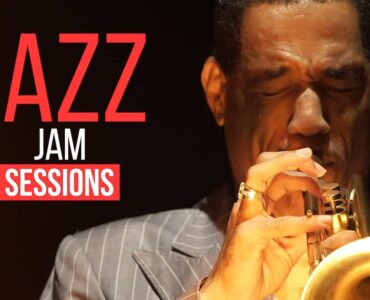Graduating from university can often lead to very mixed feelings – sadness that your studies are over, happiness at the prospect of gaining your degree and, perhaps, apprehension at what comes next. Though this is entirely natural for every graduate, it could be argued to be even more relatable for music grads.
Graduating from a music course is slightly different experience, as many music grads (especially performers) will be not be heading into an employed role, but rather be self-employed.
This means that the preparation for transitioning from education to work will be slightly different. In this blog, we examine a few ways to help smooth out this turbulent time and get some advice from the Last Minute Musicians community.
Looking for a career as a performer?
While this may seem a very specific role, in this instance the term “performer” doesn’t refer to live performance only, but to any instrumentalist or vocalist looking to predominantly make their living playing their instrument, be that live or performing on records.
Some skills that will help improve your employability:
- Be a multi-instrumentalist
- Learn to drive
- Improve your sight reading
- Have charisma and people skills
- Be organised and reliable
If this is the case, hopefully your preparations will have begun before the time of graduation, but there are several pro-active steps you can take once your studies finish.
Research
If you’re an instrumentalist, singer or both, a great way to kick off your career is by joining an established act.
This can come in several different forms; Joining an established function or wedding band will afford the opportunity to make money relatively quickly, whereas joining an established touring act may involve longer periods of rehearsal before going out on tour.
Being flexible musically is definitely the aim of the game here – the more genres you feel comfortable playing in, the more opportunities you’ll feel confident perusing.
There are several websites dedicated to putting musicians in touch with prospective band members, so a good Google search is usually the place to start.

Professional musician Paul Welsh graduated in 1995 and believes that the ones who are successful are those who are persistent.
That was 18 months after graduation I took a job cleaning aircraft at Gatwick- that provided accommodation. I stuck that for a few weeks then got a job delivering pizza. That was handy as it was flexible enough for me to attend auditions. From there, I auditioned for and got gig on holiday camp as bassist/guitarist. Nowadays I split my earnings between teaching guitar and bass in schools and gigging- the function circuit, holiday camp residency. To do what I’ve done, you need to read music without preparation, and it helps in this line of work to play something useful, i.e. be a singer or bass player or pianist. Everyone plays guitar, there are ten guitar players for every gig and most of them are, despite college, poor readers by their own admission. The guy who can read and groove gets the gig.
Paul Welsh
Social media
There are many Facebook groups for the musical community in the UK and two of the largest are UK Musicians for Gigs and Dep Musicians in the UK – Needed and Available.
Between both of these groups, loads of new opportunities are being posted every day.
That said, competition for the most lucrative gigs can be fierce to it’s advisable to turn notifications on for both groups in order to be first in line!
Chris Jones, studied Popular Music at the Colchester Institute of Music and currently plays in a Neil Diamond Tribute Band. He said:
Being a musician requires a lot of courage because there is a great deal of uncertainty. You cant go in half hearted, you need to be prepared to give it 100% max effort as it requires a lot of work without the pay off at first. Rehearsal time, travel time, cost of getting from A to B, gear cost, gear insurances, setting up time, packing away time, liaising with venues, creating some sort of contract, pulling in the gigs. That’s all without the actual performance itself too. At first it feels like the money is very minimal. It takes a good 5 years for a musician to get truly established.
Chris Jones
Establish your own act
One of the benefits of studying music at university is that (hopefully!) your contemporaries go on to be your contacts in the industry upon graduation.
Many of them will be in the same boat as you when it comes to the next step, and so getting a select group of players together and forming a new covers act is a great way to make something happen.

Calvin Travers: Recently graduated from Leeds College of Music, Calvin studied guitar as his principle instrument and now performs in Last Minute Musicians’ band Trading 8s. He said:
I enrolled in order to meet lots of musicians and receive weekly one to one tuition with Manchester based guitarist Stuart Mccallum. My main aspiration is to support myself through performing live. A lot of the focus of the industry side was more geared towards original commercial music at Leeds College. I felt that didn’t apply to me or lots of other people in a practical way that would aid us to make a living realistically. Other than the networking we did ourselves just by meeting people in the college and at gigs we weren’t given any help through the college. I have only working as a full time musician for four months but I wish I had started whilst still studying so that it would be set up for when I graduated.
Calvin Travers
Looking for a job in the Music Business?
When people refer to the Music Industry, they are generally talking about something that incorporates all the different roles involved in music, from singer of a rock band to the accounts department of Sony.
The music business is generally the term applied to anyone that works outside of performing, in the many administrative roles like management, A&R or publishing.
For those that don’t feel the call of the stage and the draw of the crowd, there are still numerous opportunities to work in the music business that don’t involve performing.
Radio stations, record labels, TV channels and a whole host of other companies will all be needing staff, and though applying for jobs can be competitive, the opportunities are out there for those that persist.

Internships
The traditional route for starting out in the music business is by interning. This will vary dependent on what area you are specifically looking to get into, but there are usually a variety of roles available in each department.
While some of the tasks you have to do might not be glamorous, you will gain invaluable experience and quite possibly get a backstage pass to some of the gigs, events or award parties.
If you work hard, the company will be much more likely to take on somebody that they already know is dependable when an opening is presented.
Start-ups
Thanks to grant money from various foundation groups, developing artists and music industry start-ups can get a leg up in the game. Due to budget restrictions, Full-time roles in the area are hard to come by.
You may end up working part –time or for an hourly rate as a freelancer. However, if you aren’t quite ready to start something for yourself, you might be able to find jobs by bookmarking the likes of Indeed and Musicweek.com, regularly searching for jobs listed in your area.

Networking
Whether it’s a business role or performing, networking is vital to practically every area of the music industry.
While it may sound like a complicated idea, networking is really only a fancy term for making friends.
Get out and about in your local music scene and make the effort to meet your local bands, producers and venue owners.
You never know which one of them might have heard of an opening or opportunity.
Looking to teach music?
Teaching music can be an incredibly rewarding experience. Working with children to help them attain their goals, pass exams or simply learn their favourite songs can prove to be a very good experience for both you and your students.

There are so many different areas of teaching that a musician may be attracted to, it’s tough to list them all. Popular areas include:
- Private lessons
- Charity-ran music schools
- Visiting tutors to schools, colleges and universities
- Full-time schoolteachers
- University lecturing
Karl Younger, Guilford Academy of Contemporary Music Graduate says:
Don’t write off teaching and getting a PGCE to become a fully qualified teacher. This is what I ended up doing and although it was very hard work and stressful it has paid off. I didn’t enjoy working as a straight ahead ‘classroom music teacher’ but it has helped a great deal in landing guitar teaching positions in schools and colleges as they are very keen to take on qualified teachers above others and pay scales are better for those with QTS. Teaching is and important part of a self employed income for muso just starting out to top pros. tours only last so long and you need to have regular income.
Karl Younger
Although some may require additional qualifications, teaching music is a valuable contribution to the music industry and a good way to secure a steady job that has slightly more traditional hours than other roles.
Many musicians use teaching as a way to secure income to fund other projects, like their original music. Your local council will have information on vacancies and other Internet research can provide links to vacant teaching positions.
For specific Information on teaching as a musician, check out the Last Minute Musicians complete guide for music teachers.
Don’t forget, many full-time musicians hold down several different gigs and job roles in the industry, and there are many related jobs in areas like live sound, recording or record production that aren’t included here.
From all of us at Last Minute Musicians, we wish you the best of luck in your new career!
Sources
- http://www.theguardian.com/education/2013/oct/11/music-students-employability
- https://www.lastminutemusicians.com/articles/music/university.html
- https://www.facebook.com/lastminutemusiciansUK
Are you a music graduate? Do you currently work full time in the music industry? Let us know anything you found useful in the comments below!




















